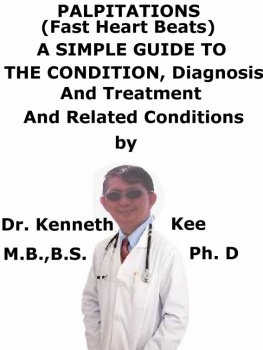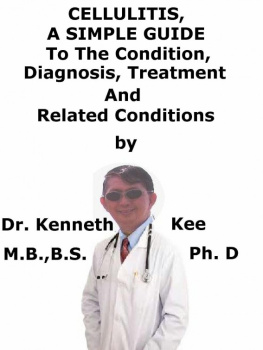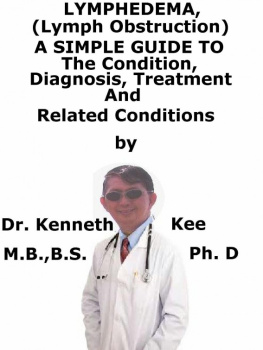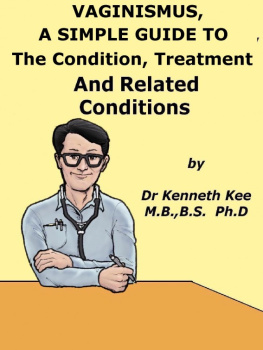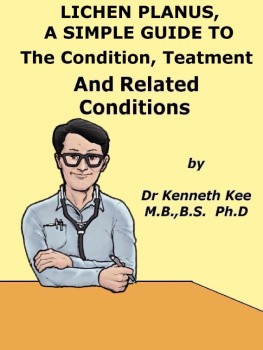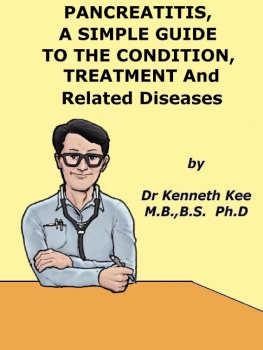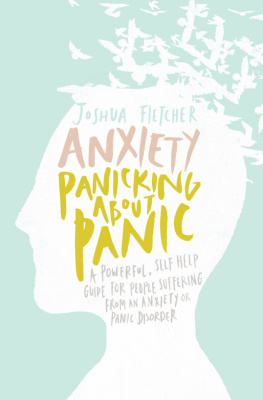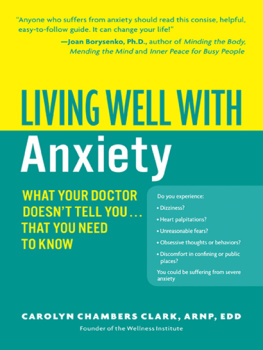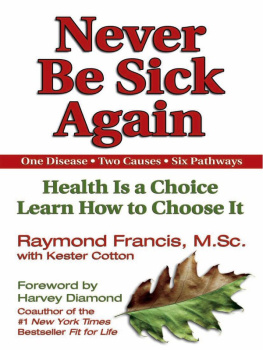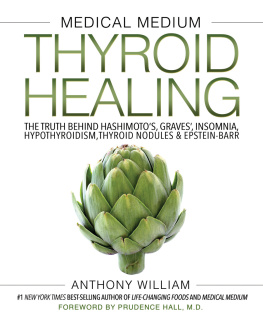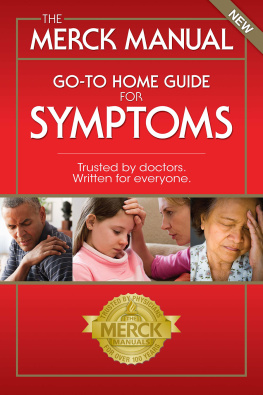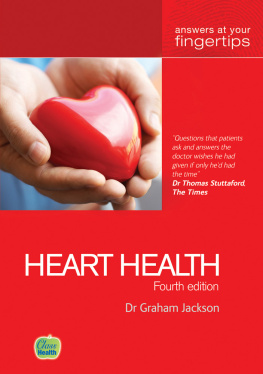Palpitations,
(Fast Heart Beats)
A
Simple
Guide
To
The Condition,
Diagnosis, Treatment
And
Related Conditions
By
Dr Kenneth Kee
M.B.,B.S. (Singapore)
Ph.D (Healthcare Administration)
Copyright Kenneth Kee 2015 SmashwordsEdition
Published by Kenneth Kee atSmashwords.com
Dedication
This book is dedicated
To my wife Dorothy
And my children
Carolyn, Grace
And Kelvin
This book describesthe Palpitations, (Fast Heart Beats) Diagnosis and Treatment and Related Diseases suchas Anxiety and Heart Disease which are seen in some patients in myFamily Clinic.
This eBook is licensed for your personalenjoyment only. This eBook may not be re-sold or given away toother people. If you would like to share this book with anotherperson, please purchase an additional copy for each reader.
If youre reading this bookand did not purchase it, or it was not purchased for your use only,then please return to Smashwords .com and purchase your owncopy.
Thank you for respecting the hard work ofthis author.
Introduction
I have been writing medical articles for myblog http://kennethkee.blogspot.com (A Simple Guide to Medical Conditions) for the benefit of mypatients since 2007.
My purpose in writing these simple guides wasfor the health education of my patients.
Health Education was also my dissertation formy Ph.D (Healthcare Administration).
I then wrote an autobiolographical account ofhis journey as a medical student to family doctor on his other blog http://afamilydoctorstale.blogspot.com .
This autobiolographical account A FamilyDoctors Tale was combined with my early A Simple Guide toMedical Conditions into a new Wordpress Blog A Family DoctorsTale on http://ken-med.com.
From which many free articles from the blogwas taken and put together into 600 amazon kindle books and someinto Smashwords.com eBooks.
Some people have complained that the simpleguides are too simple.
For their information they are made simple inorder to educate the patients.
The later books go into more details ofmedical conditions.
The first chapter is always from my earlierblogs which unfortunately tends to have typos and spellingmistakes.
Since 2013, I have tried to improve myspelling and writing.
As I tried to bring you the latestinformation about a condition or illness by reading the latestjournals both online and offline, I find that I am learning moreand improving on my own medical knowledge in diagnosis andtreatment for my patients.
Just by writing all these simple guides Ifind that I have learned a lot from your reviews (good or bad),criticism and advice.
I am sorry for the repetitions in thesesimple guides as the second chapters onwards have new informationas compared to my first chapter taken from my blog.
I also find repetition definitely help me andmaybe some readers to remember the facts in the books moreeasily.
Chapter 1
Palpitations (fast heart beats)
What Are Palpitations?
Palpitations are medical symptoms of feelingsthat the heart is beating irregularly or pounding too hard or toofast.
These sensations can also be felt in thechest, throat, or neck.
Palpitations can happen during physicalactivity or when the patient is lying down or sitting still.
Palpitations can happen together with othersymptoms like giddiness and chest tightness.
What Causes Palpitations?
Many causes of palpitations are present.
Palpitations may happen when the heart beatis normal or somewhat faster than normal.
The palpitations symptoms may appearfrightening but most are not harmful and frequently go away ontheir own.
Harmful palpitations are indicative of aheart problem.
The cause of palpitations is not known so thedoctor may need to investigate them.
Causes not linked to Heart Problems
1. Emotional causes from a surge ofepinephrine in the body
The palpitations may occur from strongemotions such as panic attacks, anxiety, or excitement.
A panic attack may produce an overwhelmingsense of anxiety, fear, and apprehension, together with nausea,sweating, trembling and palpitations.
2. Strenuous Physical Activity
Intense physical exercise may cause the heartfeel like it is beating too hard or too fast even though it isworking normally.
Intense physical exercise also can cause somepremature (extra) heartbeats.
3. Hormonal Changes
Palpitations can happen from hormonal changesthat occur during pregnancy, menstruation, and around themenopausal period.
These palpitations are temporary and tend toimprove or go away as these medical conditions go away orchange.
The palpitations in women during pregnancymay be due to anemia.
4. Medical Conditions
Many medical disorders can induce the heartto beat faster or stronger or irregularly than usual.
Medical disorders may cause premature (extra)heartbeats.
These medical disorders are:
a. An overactive thyroid
b. A low blood sugar level
c. Anemia
d. Some types of low blood pressure
e. Fever
f. Dehydration (insufficient fluid in thebody)
5. Medicines and Stimulants
Less frequently, medicines can spark offpalpitations because they can induce the heart to beat faster orstronger than usual or premature (extra) heartbeats:
a. Inhaled asthma medicines
b. Medicines to treat an under activethyroid.
Too much of these medicines can result in anover active thyroid and produce palpitations.
c. Medicines to prevent arrhythmias
Medicines used to prevent irregular heartrhythms can often induce other irregular heart rhythms.
d. Over-the-counter medicines that work asstimulants also may cause palpitations.
These are decongestants (found in cough andcold medicines) and some herbal supplements.
e. Caffeine, nicotine (seen in tobacco),alcohol, and illegal drugs (such as cocaine and amphetamines) alsocan produce palpitations.
Causes Linked to Heart Problems
Arrhythmias or abnormal heart beats arepresent in less than 50% of the people who have palpitations.
Arrhythmias are heart disorders that affectthe rate or rhythm of the heartbeat.
The heart can beat with an irregular rhythm,too fast or too slow during an arrhythmia.
The arrhythmia happens if some part of theheart's electrical system does not work as it should.
Palpitations are likely to be linked to anarrhythmia if a person has:
a. A heart attack or are at risk for one.
b. Coronary heart disease (CHD) or riskfactors for CHD.
c. Other heart problems such as heart valvedisease, heart failure, or heart muscle disease.
d. Abnormal electrolyte levels that areminerals such as potassium and sodium, present in blood and bodyfluids.
These electrolytes are necessary for normalheart health and functioning of the body.
Who Is at Risk for Palpitations?
People with increased danger to havingpalpitations are those who:
a. Have anxiety or panic attacks, or aregreatly stressed
b. Take certain medicines or stimulants
c. Have certain medical disorders that arenot linked to heart disorders (e.g., overactive thyroid)
d. Have certain heart problems such asarrhythmias (irregular heartbeats), a previous heart attack, heartfailure, heart muscle disease, or heart valve disease
e. Women who are pregnant, menstruating, orperi-menopausal also may be at higher risk for palpitations becauseof hormonal changes.

